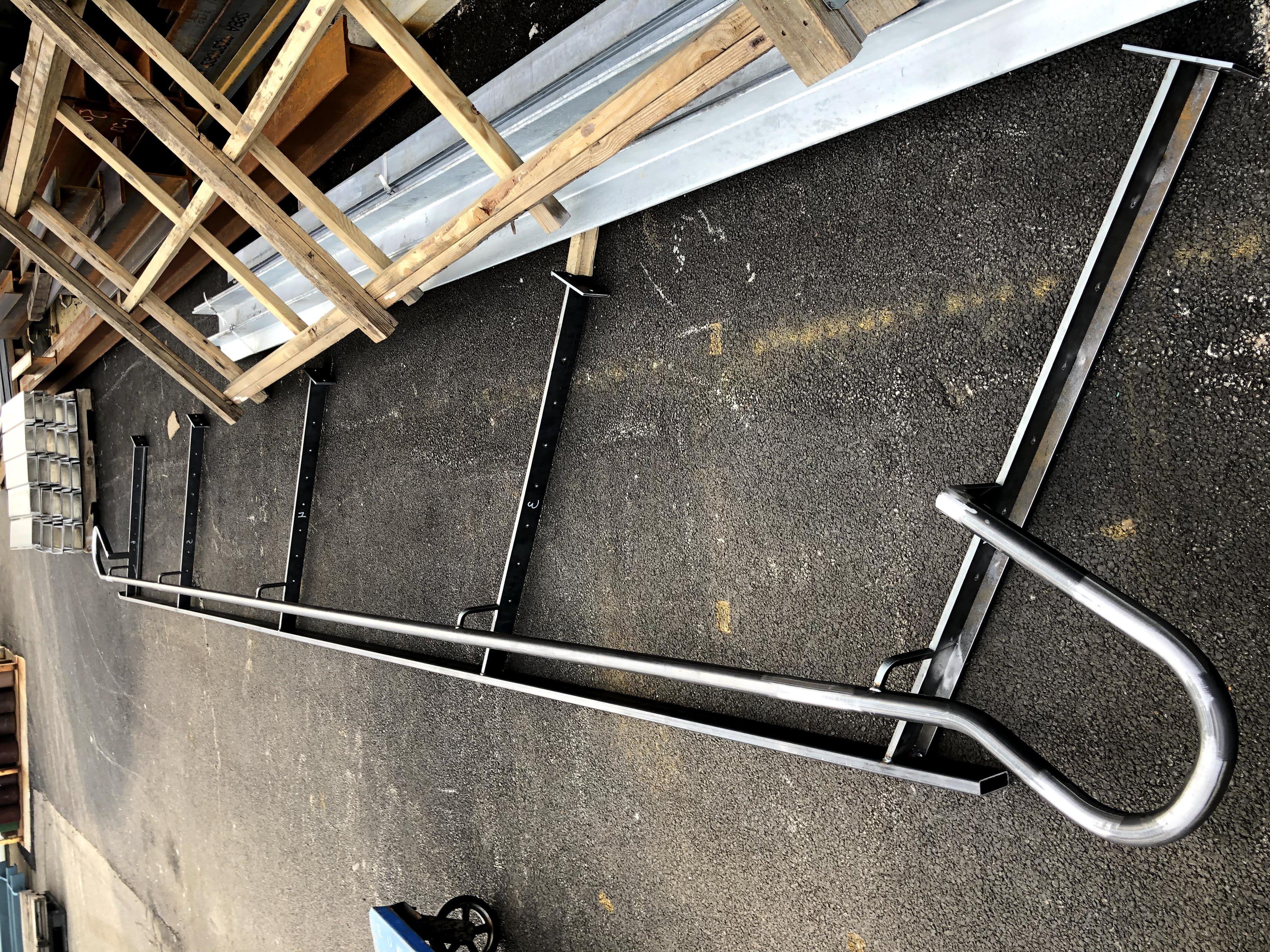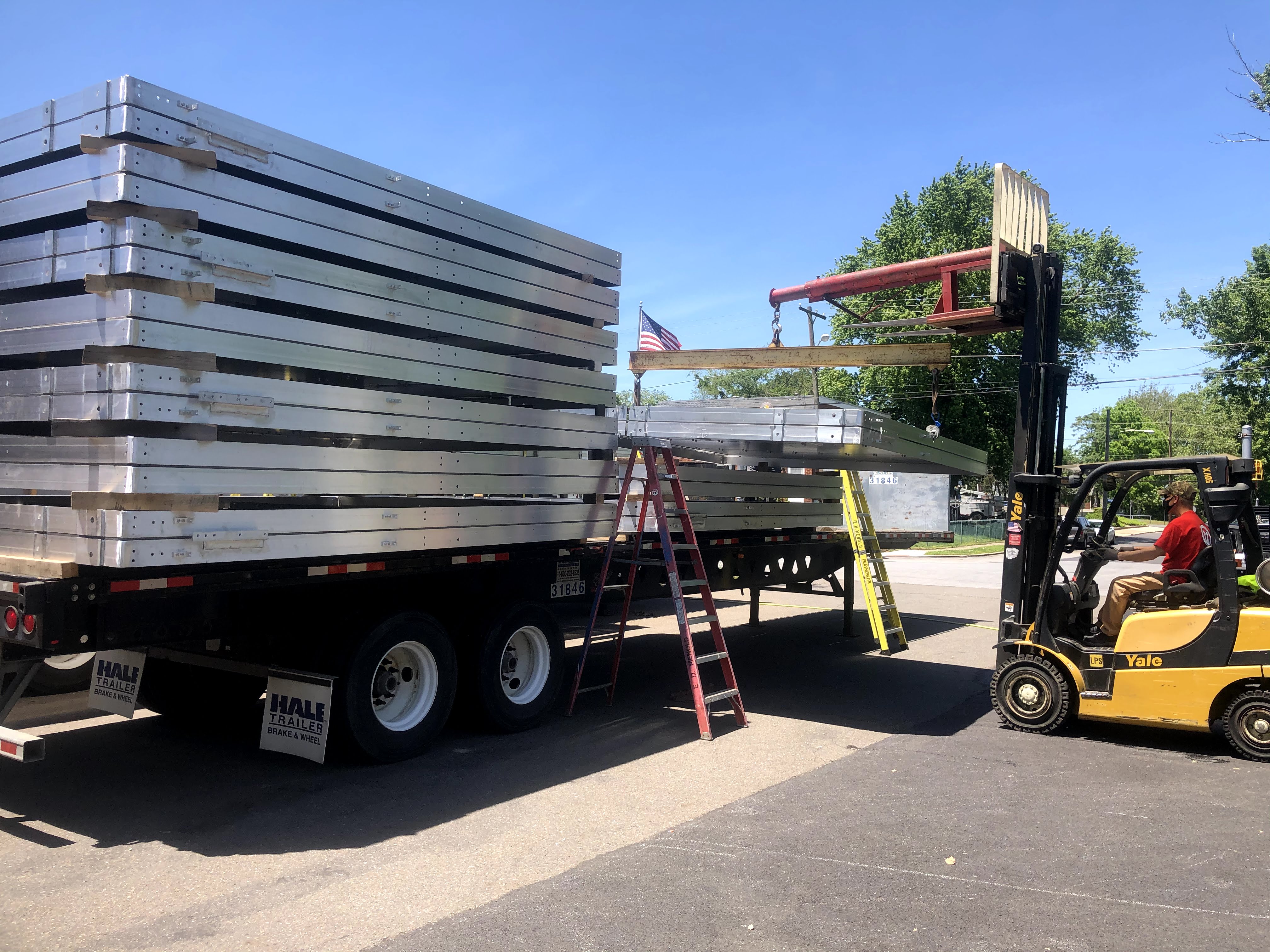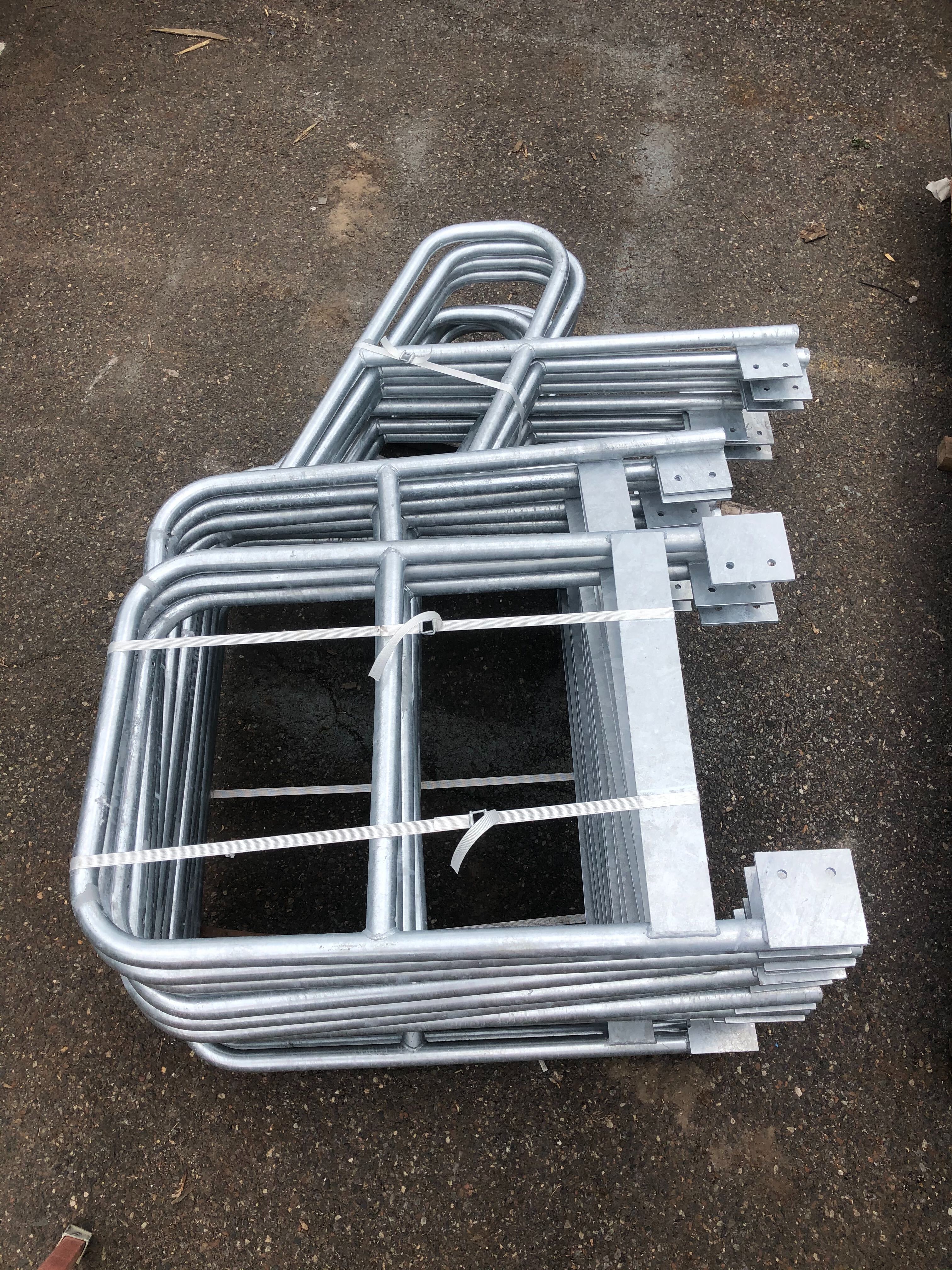
Ernest D. Menold, Inc. sees increased demand for handrails and guardrails as businesses adapt to new health guidelines.
The COVID-19 pandemic took the father-son team of Ernest J. Menold and Ernie P. Menold, third and fourth generation leaders at Ernest D. Menold, Inc., by surprise. “We went from being in a very robust economy in February to seeing huge changes in just a few weeks,” said Ernest J., company president and grandson of its founder. “We were told we would be the successful bidder on several major projects, and we still don’t have those orders. We have a lot of contracts in hand that we’re wrapping up, but we don’t know how many customers will move forward with the projects they were planning two months ago.”
Founded in 1947, Ernest D. Menold, Inc. began as a small sheet metal shop to serve local industrial manufacturing companies. Three generations later, it has grown into a major player in the greater Philadelphia sheet metal market, providing a wide range of services from HVAC to architectural to industrial work. Their customers include giants like Merck, and the award-winning Wells Fargo Center, Philadelphia’s NBA and NHL stadium.

Aluminum reactor cages for PECO required over 2,100 hours of fabrication in the shop.
Menold, Inc. anticipates continuing adjustments in the future. “The estimating department hasn’t seen a downturn in the amount of work available to bid,” explains Ernie P., business development manager and great-grandson of the company founder. “But given historical trends and the response to the 2008 recession, we expect a change in the third and fourth quarters.”
In this uncertain market, the Menolds are positioning themselves to help clients comply with new health guidelines. Menold, Inc. is ready with the handrail and guardrail businesses needed to direct foot traffic. They also designed and fabricated clear COVID-19 containment booths for healthcare providers. Healthcare professionals standing inside the customizable booths can administer multiple coronavirus tests while remaining completely protected from infection. Menold also forms and fabricates plexiglass barriers. “A customer might think of us as only HVAC specialists,” said Ernie P. “We’re educating our customer base about the full breadth of our capabilities so they know we can help them with new challenges.”
Meanwhile, Menold is reevaluating shop processes. “We do design-assist work upfront during the design process, so most project management time is focused on starting and organizing the project. With fewer new projects right now, Ernie P. is digitizing our internal order system,” said Ernest J. “We want to get away from paper vouchers and delivery tickets.”
Because craftspersons work close together, they wore respirators and Tyvek onsite to follow early recommendations. “Health regulations limit crew size, but we never laid anyone off,” said Ernest J. “At the beginning of the outbreak, about 15% of our workforce decided to stay home to protect family members, and most of them have returned to work as Pennsylvania opens up.” Now that their county health status is ‘yellow,’ the shop is almost back to normal with mandatory masks, painted lines to designate work areas, and no outside visitors admitted into the building.
-Copy.jpg)
Menold fabricates handrails out of steel, then hot-dip galvanizes them before sending to customers.
No matter how the economy responds, the Menolds are in a strong position to move forward. “Our largest industrial clients are Merck, the local utility company [PECO], and GlaxoSmithKline,” said Ernest J.
The industries which these three companies support are classified as essential industries, so work on those facilities never stopped. “The utility company pours a slab, and we build a pre-engineered metal switch-gear building to the specifications they give us. We put in insulation and an HVAC system based on their parameters. We’ve done 12 or 14 of these projects over the last 10 years, and we’re doing three projects with a total of four buildings for them right now.”
The Menolds don’t take all the credit for their success, though. “Our involvement in SMACNA is one of the main reasons we’re as successful as we are,” said Ernest J. “We’ve sent most of our key employees to SMACNA’s financial management programs. The opportunity to talk with peers in the trade has been invaluable. They always come back with ideas for our company.”
Ernie P. agrees. “SMACNA provides the resources that allow our employees to take the next step. If you want to bring a foreman to a project manager or a project manager into upper management, SMACNA has the resources to help your employees grow.”